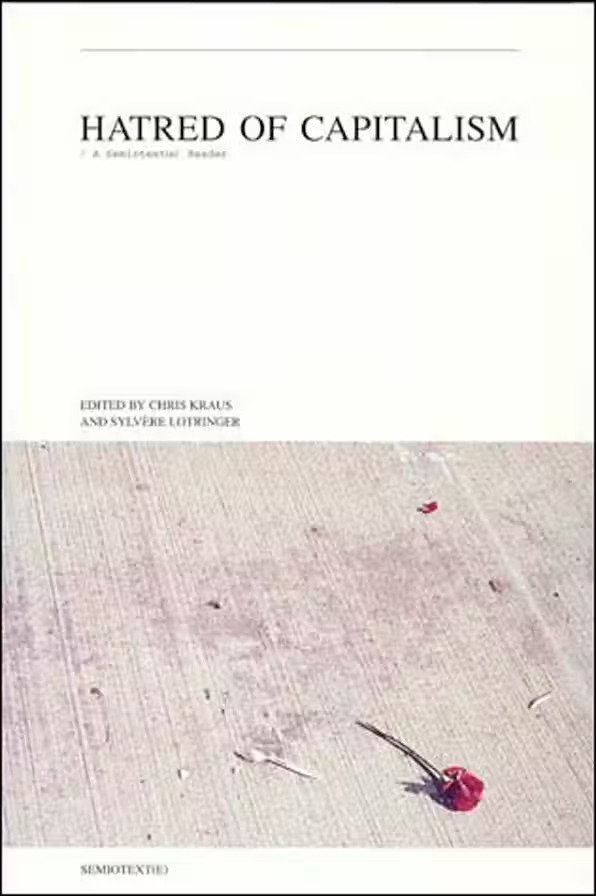HATRED OF CAPITALISM: A SEMIOTEXT(E) READER
Edited by Chris Kraus and Sylvère Lotringer
Compiled in 2001 to commemorate the passing of an era, Hatred of Capitalism brings together highlights of Semiotext(e)'s most beloved and prescient works. Semiotext(e)'s three-decade history mirrors the history of American thought. Founded by French theorist and critic Sylvère Lotringer as a scholarly journal in 1974, Semiotext(e) quickly took on the mission of melding French theory with the American art world and punk underground. Its Foreign Agents, Native Agents, Active Agents and Double Agents imprints have brought together thinkers and writers as diverse as Gilles Deleuze, Assata Shakur, Bob Flanagan, Paul Virillio, Kate Millet, Jean Baudrillard, Michelle Tea, William S. Burroughs, Eileen Myles, Ulrike Meinhof, and Fanny Howe. In Hatred of Capitalism, editors Kraus and Lotringer bring these people together in the same volume for the first time.
... a fat document of cultural resistance, written by those who thought about it and those who lived it.
—San Francisco Bay Guardian
Hatred of Capitalism proposes a certain kind of freedom, which may involve unlearning as much as learning, dying as much as living—and which is characterized by an enlarged and even exalted sense of the possible.
—Robert Glück, Bookforum
Semiotext(e) has consistently probed the intersection points between high theory and art and life in America. Publishing both French theory and American first-person fiction, Semiotext(e) invents a new plateau of thought which is dizzyingly complex and deeply subjective. Their work is resolutely difficult, dense, exhilarating and defiant, at once responsible to the past and bravely forward looking.
—Avital Ronell
Semiotext(e) has for a generation been the leading edge of the most incendiary and exciting revolution in the West. Hatred of Capitalism dips into the very fertile archives of this magazine and its book publishing arm for some of the greatest examples of the Semiotext(e) charm, menace, play and triumph. I can't think of an anthology more important or more urgently necessary for these times.
—Rick Moody
Semiotext(e)'s strange tomorrow is our strange today.
—Joshua Clover, Village Voice
Slyly compiled, this anthology brings together fiction, narrative, philosophy, and critical theory without imposing a hierarchy among genres.
—ARTFORUM
Paperback, 432 pp.
Published Jan. 18, 2002
